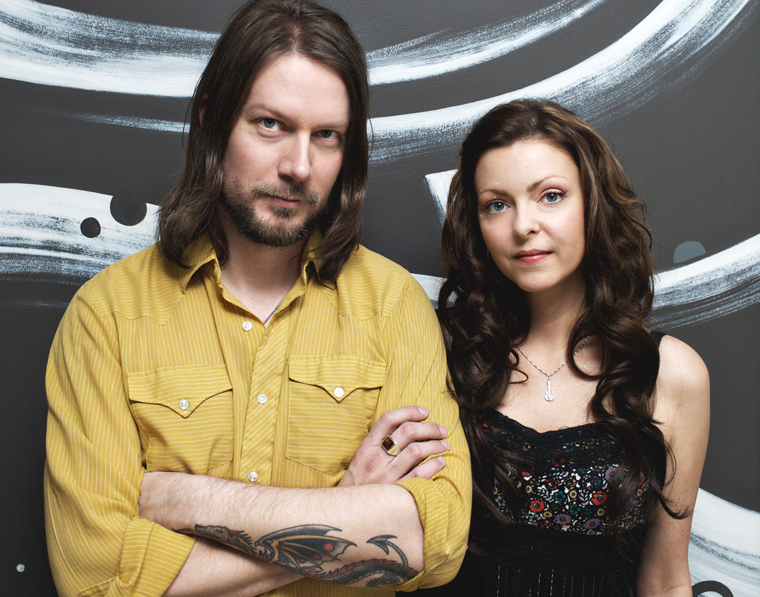 Ancestors: Invisible White EP (Tee Pee, 6/28/11)
Ancestors: Invisible White EP (Tee Pee, 6/28/11)
Ancestors: “Dust”
[audio:https://alarm-magazine.com/wp-content/uploads/2011/07/02-Dust.mp3|titles=Ancestors: “Dust”]
With its latest record, a three-track EP entitled Invisible White, LA-based quintet Ancestors shifted its focus from stoner metal to more experimental psych/classic-rock territory. The band didn’t miss a step in the transition, garnering a This Week’s Best Albums nod from us (read here).
It’s a move that many bands contemplate after establishing a signature sound with which its fans become familiar. Do you play it safe and make the record everyone expects and will undoubtedly enjoy? Do you shoot for a hit record in hopes of gaining wealth and fame? Or do you push yourself to explore new territory without worrying about the response? Below, lead vocalist / guitarist Justin Maranga explains Ancestors’ internal debate.
The Three Ways to Make Music
by Justin Maranga
There comes a time in the career of every band or musician when they have to make a choice. It is a choice that will heavily affect the future of their career. At this point, you may ask yourself what that choice is or find yourself trying to guess the possible options. Or perhaps you’re thinking, “Just get to the point already.” Well, as musicians, that’s precisely what we have to figure out. What is the point? What we as musicians must do is decide why we’re doing this and for whom we’re doing it.
So the way I see it, there are three ways we can go. The first option is that we’re doing it for ourselves; the second is that we’re doing it for the fans; and the third is that we’re doing it to attract as broad an audience as possible and hopefully will make enough money to survive (or more). Unfortunately, there is no right answer to these questions, and no matter what we choose, there are things to be lost and things to be gained. So let’s look at that, shall we?
It’s important to note that as artists, we stand to face criticism for our choice, no matter which way we go. So should we choose option number one, which is to make music for ourselves, the criticism is obvious. We may very well become the target of one of the music critic’s favorite phrases: “self-indulgent.” Dun dun dun! The hardest part of any form of art is trying to please yourself while simultaneously pleasing your audience. Of course, if you can weather the storm of criticism from fans, critics, and casual listeners who occasionally (or frequently) don’t understand what you’re trying to do, this choice undoubtedly promises to be the most personally fulfilling. And perhaps if you’re lucky, what resonates with you will resonate with listeners and it will prove to be financially fulfilling as well.








